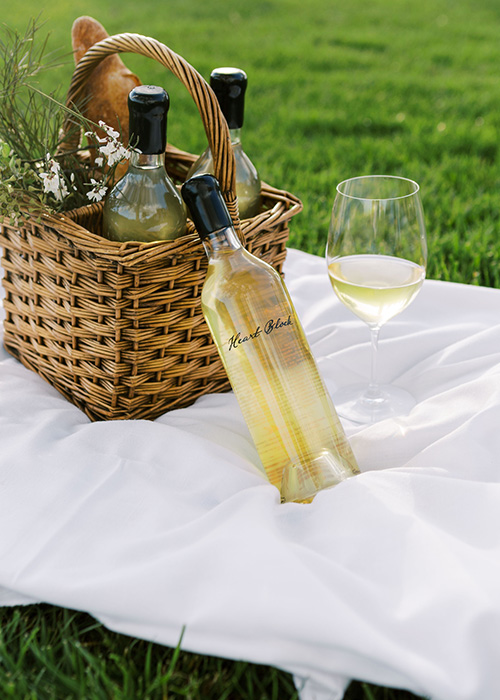When it comes to wine packaging, environmentally conscious oenophiles often look toward solutions for replacing glass bottles. But from labels to the metal foil that encases corks on the majority of wine bottles on the market, wine’s ecological footprint reaches far beyond the bottle. The latter is rarely discussed among consumers, but some producers are slowly moving to eliminate the waste created by foil casings on their wines.
Tom Gamble, proprietor of Gamble Family Vineyards, a Napa Valley winery known for its opulent Cabernet Sauvignons and Sauvignon Blancs, has been paying special attention to foil waste. In 2009, his team began the process of leaving behind foil for sustainable wax closures on its more high-end wines. “We’re reducing raw materials, which has a better environmental footprint, and obviously a better carbon footprint,” Gamble says.

Don’t miss a drop!
Get the latest in beer, wine, and cocktail culture sent straight to your inbox.
Initially, the foil-less wines were only sold direct-to-consumer through Gamble’s membership program. Thirteen years in, the winery is taking its commitment a step further with a goal to eliminate foil casings on all of its wines through the use of wax and exposed cork. Not only will this help lower production costs, it will reduce the amount of metals being mined from the earth. It’s a decision that checks out from a quality perspective, too; although foil has historically been used to protect cork — and the wine beneath it — from bacteria and mildew collected in dusty cellars, modern-day storage facilities and quality control in shipping and storage have rendered this measure widely unnecessary.
There are also optics to consider. Extravagant packaging was long considered necessary for wine brands to cater to affluent consumers, but Gamble says this view is shifting with the times as the next generation of drinkers (who largely care more about the environment than the appearance of wine bottles) comes of age. Plus, this new way of packaging is giving winemakers an opportunity to play with package design, thinking outside of the box to create new branding techniques, like adding winery logos to exposed corks. Not only does the removal of foil reduce wines’ carbon footprint, it also eases recyclers’ loads: “A lot of people are doing the good thing, and then the recyclers have nowhere to recycle anymore,” Gamble says, meaning goods that were meant to be recycled often end up in landfills.
As wineries around the globe forgo foil capsules for environmentally friendly and cost-effective production as well as a minimalist aesthetic, the choice is especially noticeable in the trend-sensitive natural wine community. “As we build out our private label program, sustainability is undoubtedly a focus,” says Dylan Melvin, adult beverage director and sommelier at culinary retailer Foxtrot. “Beyond organic and sustainable viticulture, that includes being thoughtful with how we package the liquid. Specifically, how can we reduce the waste by removing foil or other ornamental packaging materials. For Mouthy, [Foxtrot’s new minimal-intervention wine collection], that meant removing foil from not only our still wines, but even our sparkling wine as well.”